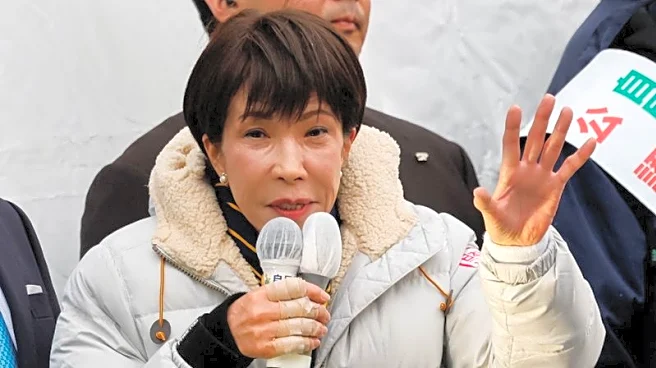What's Happening?
President Donald Trump is scheduled to meet with Chinese President Xi Jinping in South Korea on October 30, as confirmed by the White House. This meeting will occur on the sidelines of the Asia Pacific Economic Cooperation (APEC) Summit in Gyeongju, South Korea.
It marks the first face-to-face encounter between the two leaders since President Trump's return to office. The meeting comes at a time of heightened tensions between the United States and China, particularly concerning trade issues. President Trump has threatened to impose an additional 100% tariff on Chinese goods starting in November if China does not ease its restrictions on rare earth exports. The meeting aims to address these economic tensions and explore potential solutions to improve China-U.S. economic and trade relations.
Why It's Important?
The meeting between President Trump and President Xi is significant as it could influence the future of U.S.-China trade relations, which have been strained by tariffs and trade barriers. The outcome of this meeting could have substantial implications for global markets, given the economic power of both nations. A resolution or escalation in trade tensions could impact industries reliant on Chinese imports, such as technology and manufacturing, and affect global supply chains. Additionally, the meeting's outcome may influence diplomatic relations and set the tone for future negotiations between the two countries. Stakeholders in both nations, including businesses and policymakers, are closely watching the developments, as any agreement or disagreement could have far-reaching economic consequences.
What's Next?
Following the meeting, potential outcomes could include a de-escalation of trade tensions if both leaders reach a consensus on key issues. Alternatively, if no agreement is reached, the U.S. may proceed with the planned tariffs, further straining economic relations. The meeting is part of a broader trip by President Trump to Asia, which includes participation in the ASEAN summit in Malaysia and meetings with leaders from South Korea, Malaysia, and Japan. The international community will be observing the outcomes of these discussions, as they may influence regional economic policies and alliances.

















